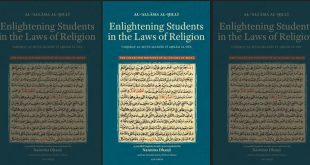In this paper, the writer attempts to delineate the Qur’anic position on peaceful coexistence with the “other” and also examines the classical juridical and exegetical pronouncements on peace and war in Islam.
Until recent times, nations have lived in relative isolation. With the advanced means of communication and increased emigration, different religious and ethnic groups have had to share common space. More than ever, the need to understand, respect, and live with the “other” has become imperative. More importantly, citizens of all nations must come to terms with human diversity that characterizes their terrestrial existence. Dealing with human diversity requires a proper articulation of the means of peaceful coexistence.
Given the fact that, in recent times, there has been much discussion on violence in Islam, a discourse on the issue of peace within the Islamic tradition is to be welcomed. It is imperative to voice an opinion on an issue that is of major concern to millions of people, especially for a religion that has often been targeted as violent and extremist.
In this paper, I will attempt to delineate the Qur’anic position on peaceful coexistence with the “other.” I will also examine the classical juridical and exegetical pronouncements on peace and war in Islam. In the final section, I will assess the possibility of an Islamic theology of peace in modern times.
 Ijtihad Network Being Wise and Faithful Muslim in the Contemporary World
Ijtihad Network Being Wise and Faithful Muslim in the Contemporary World

